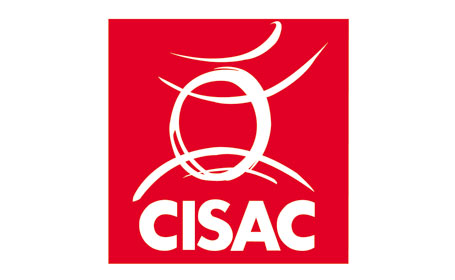For more on radio and music business news. | Click on RNMBiz

MUMBAI: Representative of three million authors globally, the International Confederation of Societies of Authors and Composers (CISAC) has won a major victory as the General Court of the European Union (EU) has uphold CISAC’s appeal against the 2008 EU Commission decision. The allegations that CISAC and their member societies have engaged in a concerted practice in order to restrict competition has been finally rejected.
The court has rejected the EU Commission’s decision and accepted the CISAC 's pleas in the appeal. In its 2008 decision, the Commission alleged that the existence of identical territorial restrictions in reciprocal agreements signed between societies in Europe is the result of a coordination that violated EU competition laws.
CISAC director general Olivier Hinnewinkel said, “This is a very important decision for authors and their collective management organisations throughout the European Union."
Speaking with Radioandmusic.com, former CISAC representative in India and managing director of Universal Music Publishing Achille Forler said, “This is a landmark judgement that will immensely strengthen the Societies of Authors-Composers and Publishers worldwide, including IPRS in India, as it recognises once and for all the special nature of copyrights administration and upholds as 'best practice' the rationale of having only one Society per country for literary and musical works. In other words, it is a kick in the back of all the free market jihad who want us to equate a song with a sack of potatoes. One cannot hold it in same lines with other consumer goods and services. The European judgement can be a benchmark for India if any such cases emerge in future.”
The key arguments put forward by CISAC against this decision were based on the lack of evidence for the Commission’s allegations.
Hinnewinkel added, “It allows us to get back to the job of ensuring the three million creators and rights holders that we represent obtain a fair income from the use of their creative work, and to continue developing licensing models that meet the market’s needs.”
CISAC argued that there was no proof for the ‘coordinated behaviour’ the Commission claimed existed. CISAC also argued that there are perfectly logical reasons to include territorial restrictions in reciprocal agreements and that the existence of similar restrictions in different agreements is not the result of any coordination, but the outcome of an independent decision by each society. The Court agreed with both arguments.
The Court accepted that while the Commission only challenged the territorial restrictions with respect to three forms of exploitation - Internet, satellite and cable - the CISAC Model Contract and the reciprocal agreements implementing it have been in place years before these technologies developed. The arrival of new technologies cannot automatically turn existing structures for collective management into anti-competitive behavior.
The Court also accepted that societies have very good reasons to mandate a single society with a local presence in each foreign territory. Among the logical explanations for mandating only one society per territory, the Court acknowledged in particular the need to ensure that the rights of a society's members are properly protected and enforced against infringers. The Court adopted CISAC’s arguments that it is perfectly logical for a society to set the borders of its mandates and appoint, for each country, a local society that has the knowledge, expertise and capability to approach users and monitor any unauthorized use in its market.
Importantly, the Court believed there are legitimate reasons why a society would not want to organize competition over its own rights in a given territory. It recognized that competition between two societies in a single territory could remove incentives to monitor and enforce rights; this is because none of the competing societies would be guaranteed to be the one that licenses these rights. In doing so, the Court opened the door for the development of new multi-territory licensing models
On the basis of its analysis, the Court annulled the part of the 2008 decision dealing with “concerted practice relating to territorial restrictions” in reciprocal agreements. Other parts of the 2008 decision concerned membership and exclusivity clauses in the CISAC model contract. These parts were not appealed, because CISAC had already addressed all of the Commission’s concerns by amending the Model Contract a long time before the 2008 decision was announced.
“There are important implications for the general public as well as for authors,” continued Hinnewinkel. “The great majority of our members’ livelihoods rely on receiving a fair income for their work. However, it’s also vital that licensing allows the maximum number of people can see, hear and enjoy their creative output. Today’s decision allows us to continue our work in championing sustainable licensing solutions that share the benefits of this art whilst ensuring the next generation of creators can continue to produce work to enrich all of our lives.”
The so called ‘CISAC Case’ began with two complaints in the early 2000s against the model contract for reciprocal representation developed by CISAC many years ago (hence the name) and the agreements signed based on this contract between CISAC members in Europe. The European Commission considered these complaints for a number of years. When the decision eventually came in 2008 to uphold these complaints, only one issue remained - the assertion that the 24 European CISAC societies had violated EU competition rules by coordinating the territorial scope of their reciprocal representation agreements. Other issues – relating to membership conditions and exclusivity – have been addressed by CISAC and its members through amendments to the model contract and changes to individual contracts between European societies.
Chronology of the case
• 2000-2003 : Complaints by RTL and Music Choice
• 2008 - July : Commission Decision
• 2008 - October : CISAC and 24 European Societies file an appeal
• 2011-12 : Hearings in appeal
• 12 April 2013: European Court issues Judgement